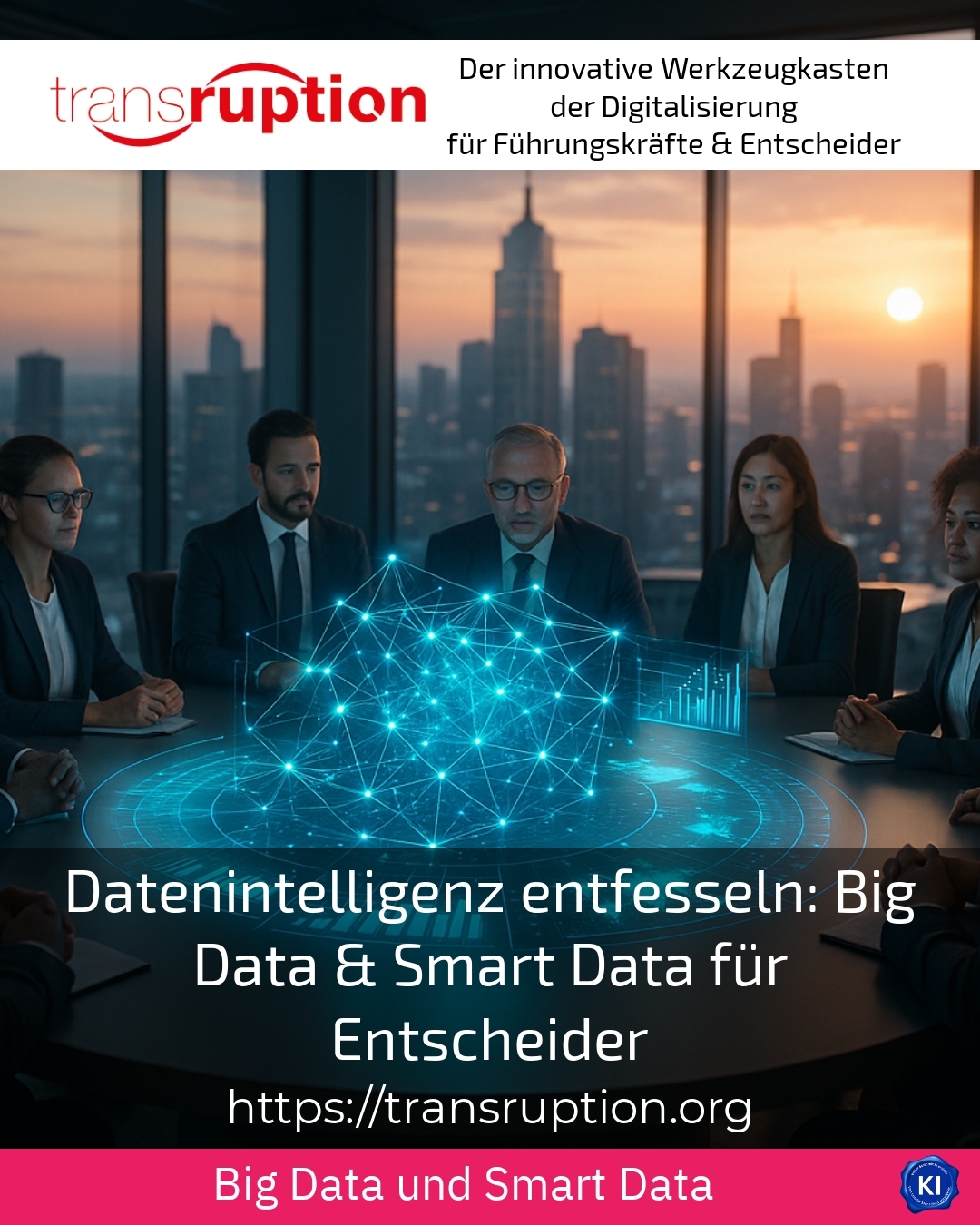Today, data intelligence is a key driver for well-founded decisions in companies. Many managers are looking for ways to derive real recommendations for action from the flood of information. Data intelligence helps to transform big data into targeted, relevant and usable insights. This not only creates more transparency, but also a better basis for strategic projects.
Big data and smart data: the difference
Big data refers to huge, often unstructured volumes of data. This comes from various sources such as sensors, transactions or online interactions. However, the sheer volume of data does not add any value. This is where data intelligence comes into play: it filters, cleanses and summarises the data to create smart data.
Smart data are specifically processed data sets that provide directly usable insights. It is more precise, contextualised and supports decisions in real time. Companies use smart data to optimise processes, better understand customer needs and identify risks at an early stage.
Examples from practice
In the manufacturing industry, smart data helps with predictive maintenance. Sensors on machines continuously supply information. Data intelligence analyses this and warns of potential failures. This enables companies to avoid expensive downtime and increase productivity.
In marketing, companies use smart data to specifically address target groups. By analysing customer behaviour and preferences, campaigns can be personalised. This leads to higher conversion rates and better customer loyalty.
In healthcare, smart data enables personalised therapies. Data intelligence links medical information with lifestyle factors. This enables doctors to create personalised treatment plans and support the healing process.
Data intelligence as the basis for decisions
Decision-makers often report how data intelligence provides valuable impetus when planning and implementing complex projects. The targeted selection of relevant data allows risks to be minimised and opportunities to be identified more quickly. This makes decision-making more agile and well-founded.
Data intelligence also helps to avoid data silos. Many companies collect large amounts of data but are unable to utilise it effectively. With data intelligence, the most important information is brought together and made accessible to all relevant departments.
Best practices from the industry
A logistics company used data intelligence to extract relevant KPIs from big data. This made it possible to forecast delivery times more accurately and manage stock levels better. This helped to reduce costs and increase customer satisfaction.
A marketing agency implemented data-intelligent systems to analyse customer behaviour in real time. This enabled campaigns to be flexibly adapted and wastage significantly reduced. This led to a noticeable increase in sales and improved customer loyalty.
A financial services provider used data intelligence to base portfolio decisions on reliable data. Instead of relying on unstructured amounts of information, relevant key figures were analysed in a targeted manner. This improved risk assessment and returns.
Data intelligence and machine learning
Machine learning benefits in particular from smart data. Less but high-quality data often leads to better results than large, unstructured volumes. Data intelligence ensures that the algorithms are trained with the most relevant information.
In customer service, chatbots are trained with smart data. They recognise common concerns and offer suitable solutions. This saves time and improves the customer experience.
In production, machine learning models help to recognise quality problems at an early stage. Data intelligence filters out the decisive parameters and enables precise error analyses.
My analysis
Data intelligence is a decisive factor for the success of modern companies. It transforms big data into smart data and makes information usable. This creates new opportunities for optimisation, innovation and growth. Decision-makers who utilise data intelligence are able to act faster and on a more informed basis. They recognise opportunities and risks at an early stage and can take targeted action.
Further links from the text above:
Smart data: definition, application and difference to big data
Big data vs. smart data: is more always better?
Smart data, or the intelligent use of data
Big data: the utilisation of large amounts of data
Big data: definition, application, tips
Unleashing data intelligence: Big Data & Smart Data for Decision Makers
Big Data & Smart Data specifically for decision-makers
Smart + Big Data | Artificial Intelligence
For more information and if you have any questions, please contact Contact us or read more blog posts on the topic TRANSRUPTION here.















